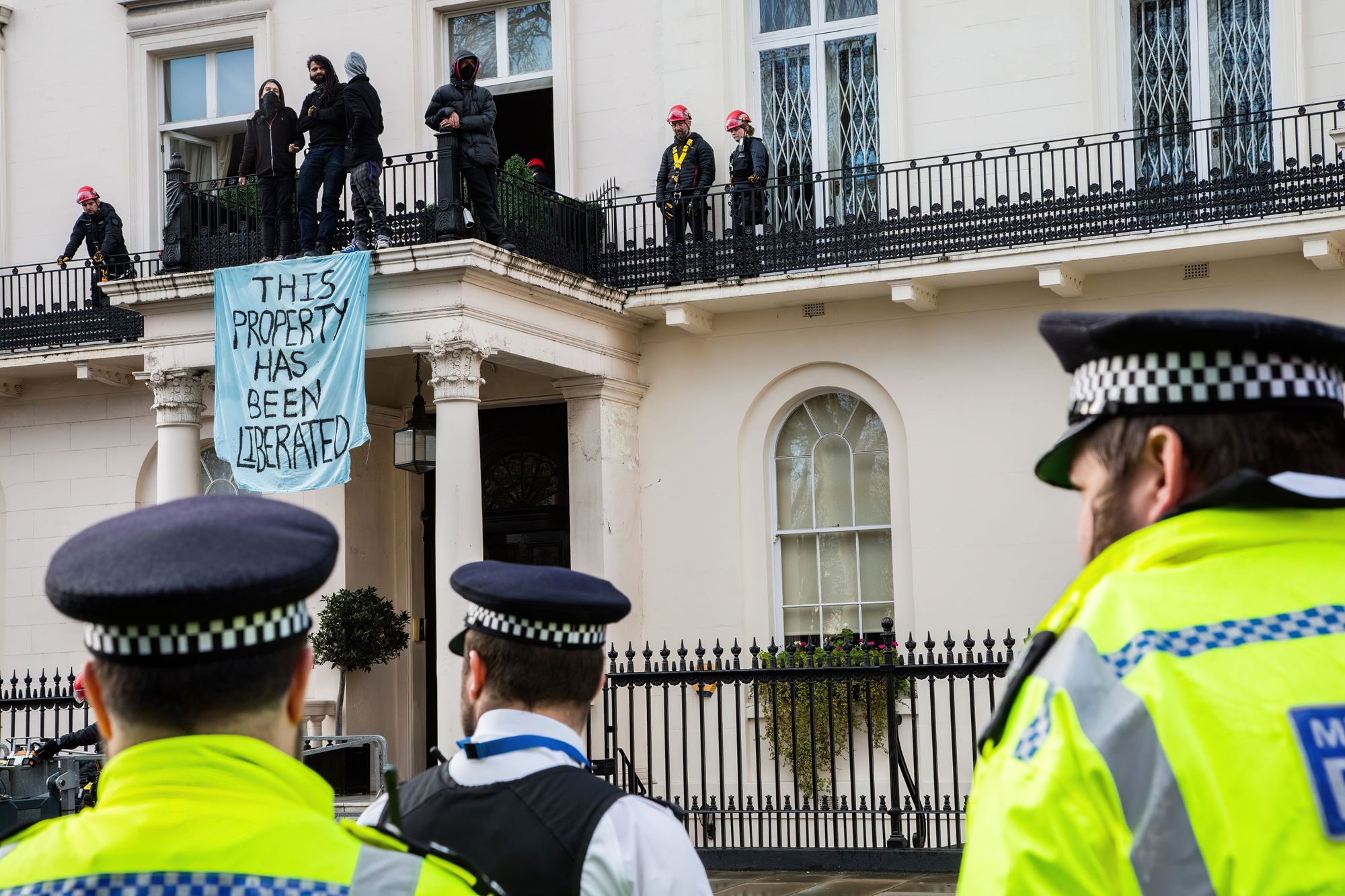Ukraine war latest: Zelensky says Russia deliberately targets grain infrastructure in Odesa Oblast

Key developments on July 19:
- Russia’s overnight attack targets Ukraine’s grain infrastructure in Odesa Oblast, injures at least 10
- US to provide 4 NASAMS systems to Ukraine under new $1.3 billion military aid package
- Russia threatens that all ships sailing to Ukrainian ports will be considered ‘military targets’ as of July 20
- Russian troops retreat from their positions near a village in the Bakhmut direction, Ukraine says
- Irish Prime Minister visits Ukraine, announces $5.6 million in humanitarian aid
Russia unleashed a mass missile and drone attack against Ukraine overnight on July 19, targeting critical infrastructure and military facilities with the main focus on Ukraine’s southern Odesa Oblast, according to the country’s Air Force.
Several Russian cruise missiles hit the grain and oil terminal of a port in Odesa Oblast, damaging loading equipment and destroying 60,000 tons of grain, according to Agriculture Minister Mykola Solskyi.
"Russian terrorists absolutely deliberately targeted the infrastructure of the grain deal, and every Russian missile is a blow not only to Ukraine but also to everyone in the world who seeks a normal and safe life," President Volodymyr Zelensky wrote on Telegram.
This is Russia’s second consecutive strike against Odesa in the past two days, following its July 17 withdrawal from the Black Sea Grain Initiative. The agreement has played a crucial role in stabilizing food prices worldwide amid a surge caused, in part, by Russia's full-scale war against Ukraine.
According to Ukraine’s Air Force, on July 19 Russia targeted Ukraine with a total of 16 Kalibr cruise missiles launched from the Black Sea Fleet vessels, along with eight Kh-22 cruise missiles, six Oniks cruise missiles, one guided aerial Kh-59 missile, and 32 Iranian-made Shahed 136/131 drones.
Ukraine managed to shoot down 13 Kalibr cruise missiles, one guided Kh-59 cruise missile, and 23 Shahed drones, the Air Force said.
Apart from the grain and oil terminal, the Russian attack also hit an infrastructure site and damaged recreational centers and hotels in Odesa Oblast, as well as several buildings in the regional capital, reported Odesa Oblast Governor Oleh Kiper.
The attack injured at least 10 people across Odesa Oblast, according to the Prosecutor General's Office. Kiper, however, said that 12 people were wounded in the attack, including a 9-year-old child.
Following the attack, Zelensky said that the military had been instructed to strengthen the security of ports and that Ukraine needs additional SAMP-T or Patriot air defense systems to protect the city.
US to provide 4 NASAMS systems to Ukraine under new $1.3 billion military aid package
On July 19, the U.S. announced a new military aid package for Ukraine worth $1.3 billion.
It includes four National Advanced Surface-to-Air Missile Systems (NASAMS), as well as Phoenix Ghost and Switchblade Unmanned Aerial Systems (UAS).
NASAMS has been in service in Ukraine since November 2022, when the first systems were delivered in the midst of Russia's mass missile campaign against Ukrainian energy infrastructure.
The system is seen to be particularly useful in Ukraine due to the large stocks in NATO countries of the AIM-120 AMRAAM missiles used.
The announcement comes a day after an online meeting of the Ukraine Defense Contact Group — known as the Ramstein Group — which was attended by Ukrainian Minister of Defense Oleksii Reznikov and hosted by the U.S. Department of Defense.
The package also includes precision aerial munitions, 152mm artillery rounds, mine clearing equipment, electronic warfare and drone detection equipment, port security equipment, 165 tactical vehicles, and 150 fuel trucks.
"The United States will continue to work with its Allies and partners to provide Ukraine with capabilities to meet its immediate battlefield needs and longer-term security assistance requirements," reads the U.S. Defense Department press release.
Russia threatens that all ships sailing to Ukrainian ports will be considered 'military targets' as of July 20
On July 19, the Russian Defense Ministry declared that all vessels sailing to Ukrainian ports will be considered "military targets" starting from midnight Moscow time on July 20.
According to the ministry, all ships traveling across the Black Sea to Ukrainian ports "will be considered as potential carriers of military cargo," and therefore regarded by Russia as on the side of Ukraine in the war.
The ministry also claimed that "a number of sea areas in the northwestern and southeastern parts of the international waters of the Black Sea have been temporarily declared dangerous," as well as that "corresponding information warnings about the withdrawal of safety guarantees" have been issued.
The claim comes two days after Russia pulled out of the Black Sea Grain Initiative dealing a significant blow to global food security. Brokered by Turkey and the U.N. in July 2022, the deal allowed Ukraine to continue exporting its agricultural products through the Black Sea during the full-scale invasion.
Zelensky has called Russia's withdrawal from the deal "blackmail."
U.S. Secretary of State Antony Blinken said on July 17 that Russia is using food “as a weapon in its war against Ukraine."
"For years (Ukraine) has been the breadbasket of the world," Blinken said, adding that in roughly a year that the initiative has been in effect, Ukraine has exported the equivalent of 18 billion loaves of bread.
U.N. Secretary-General António Guterres also made a statement on July 17 in which he said that the hundreds of millions of people around the world who are facing hunger "will pay the price."
Russian troops retreat from their positions near a village in the Bakhmut direction, Ukraine says
During the hostilities, Russian forces were pushed out from their positions northeast of the village of Orikhovo-Vasylivka, not far from Bakhmut, the spokesperson of the General Staff of Ukraine's Armed Forces, Andrii Kovalov, reported on July 19.
According to him, Ukrainian troops have achieved partial success in their advance and solidified new positions.
The General Staff reported that Ukraine is conducting offensive operations both north and south of the city of Bakhmut in Donetsk Oblast. Kovalov said Russia is deploying its reserves but suffering heavy losses.
Earlier on July 18, Deputy Defense Minister Hanna Malyar also reported Ukraine’s advances on Bakhmut's southern flank.
On July 17 she said that the Ukrainian troops liberated 7 square kilometers in the Bakhmut direction over the past week.
Irish Prime Minister visits Ukraine, announces $5.6 million in humanitarian aid
During his state visit to Kyiv on July 19, Irish Prime Minister Leo Varadkar announced 5 million euros ($5.6 million) in humanitarian aid for Ukraine.
According to Varadkar, 2 million euros ($2.24 million) will be allocated to the United Nations Humanitarian Fund, while another 3 million euros ($3.36 million) will be spent in Ukraine by the Red Cross to help the ongoing emergency response and humanitarian crisis following Russia’s June 6 demolition of the Kakhovka dam.
The new aid adds to the 100 million euros ($112.2 million) that Ireland has already allocated to support Ukraine, Varadkar said.
During his visit, Varadkar visited Bucha, the site of a Russian massacre of Ukrainian civilians, together with Ukrainian Prosecutor General Andrii Kostin.
"This morning I came face to face with the horror inflicted by Russia’s forces on the people of Ukraine," Varadkar said at a press conference alongside Zelensky.
"I gave a commitment to President Zelensky, and to the people of Ukraine, that we will continue to offer our practical as well as our political backing," he said.

















